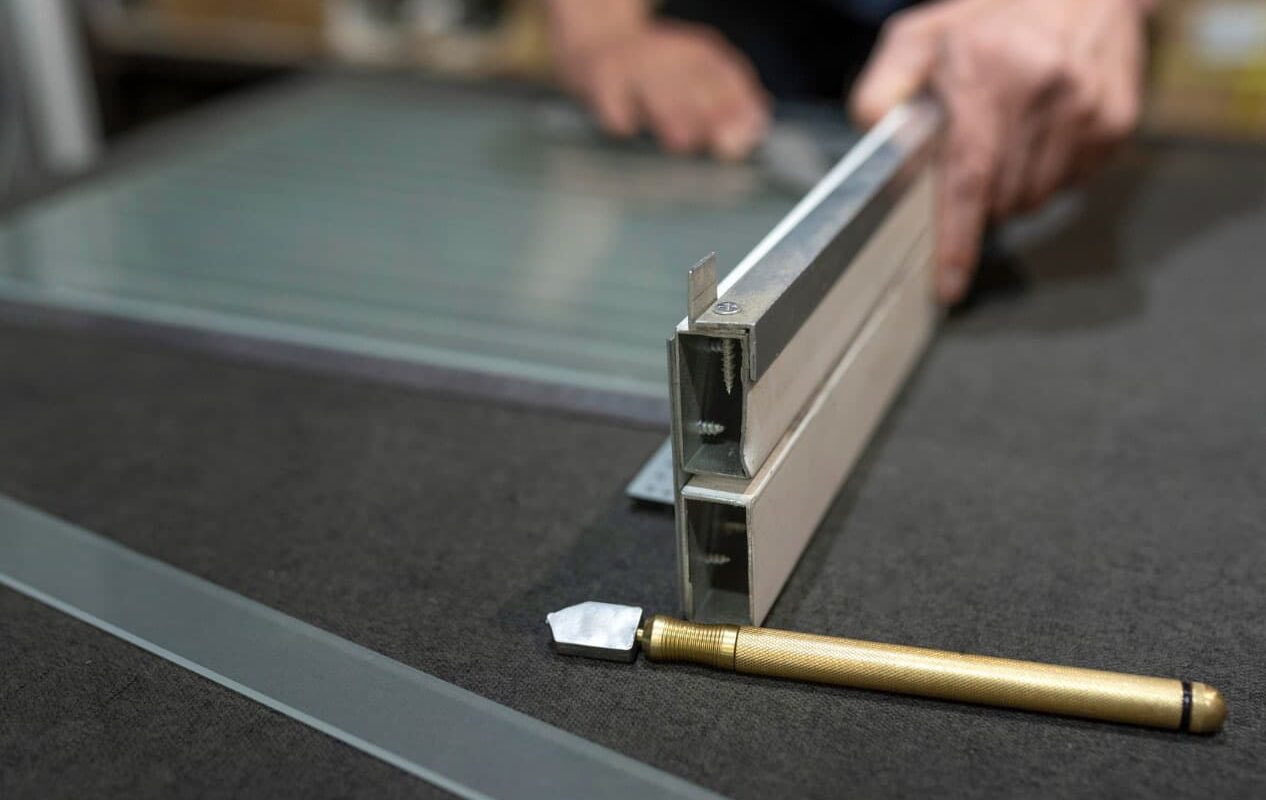Glass is a versatile material used in various applications, but its inherent brittleness has always been a challenge. However, engineers at Penn State have recently developed LionGlass, a revolutionary type of glass that is not only 10 times more damage resistant but also requires significantly less energy to manufacture. This breakthrough could have a significant impact on the glass industry, making it more environmentally friendly and efficient.
Traditional glass, known as soda lime silicate glass, is the most commonly used form of glass found in everyday products like windows and drinking glasses. The manufacturing process for soda lime glass involves high-temperature furnaces reaching up to 1,500 °C (2,732 °F), which consumes a substantial amount of energy and releases a significant amount of carbon dioxide into the atmosphere. Furthermore, this type of glass is made from quartz sand, soda ash, and limestone, with the latter two releasing CO2 when melted.
To address these environmental concerns, researchers at Penn State have created LionGlass, a new family of glass compositions that not only eliminates the need for carbonate materials but also reduces the required melting temperatures by up to 400 °C (720 °F). The replacement of carbonates with undisclosed non-carbonate materials not only reduces direct emissions during the melting process but also decreases energy consumption by approximately 30%. This significant reduction in energy consumption results in lower emissions, making LionGlass a greener alternative to traditional glass.
In addition to its environmental benefits, LionGlass also offers superior strength and damage resistance. Through testing, the researchers discovered that LionGlass compositions exhibited crack resistance at least 10 times higher than that of regular soda lime glass. Even when subjected to a force-load of 1 kg (2.2 lb), LionGlass remained intact, whereas regular glass would crack under a load of just 0.1 kg (0.2 lb). The improved damage resistance can be attributed to the glass’s atomic-scale network design, which allows for dissipation of externally applied energy, such as scratches and indentations. This intrinsic damage resistance allows the glass to absorb more energy before cracking, eliminating the need for other strengthening techniques like thermal tempering or lamination.
The potential applications of LionGlass are vast, as its increased strength allows for thinner and lighter products. By reducing the thickness of glass products, the same level of damage resistance can be achieved, resulting in lighter-weight products that require fewer raw materials and less energy for production. Moreover, the reduced weight of LionGlass products translates to lower energy requirements for transportation, contributing to overall energy savings and environmental sustainability.
The development of LionGlass represents a significant advancement in the glass industry. With its exceptional strength and reduced environmental impact, this innovative material has the potential to revolutionize multiple industries that rely on glass. From construction to transportation, LionGlass offers a winning solution for stronger and greener glass products.
*Note:
1. Source: Coherent Market Insights, Public sources, Desk research
2. We have leveraged AI tools to mine information and compile it




